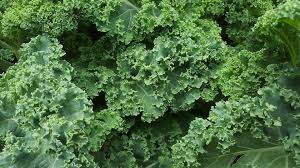By Clint Thompson
The first round of revisions made by the United States Department of Agriculture (USDA) to the commodities covered under the Coronavirus Food Assistance Program (CFAP) benefited Georgia’s vegetable producers.

Georgia Fruit and Vegetable Growers Association (GFVGA) Executive Director Charles Hall was appreciative of the consideration given to the crops his organization petitioned for.
“Some of our January to April crops, GFGVA petitioned for the mustard, kale, collards and turnip greens to be added to that. We provided the documentation,” Hall said. “We’re very grateful that along with several other states that were in the same situation as we were to be able to show that there was a 5% drop in the pricing during that time. We’re glad of that.”
In a press release, U.S. Secretary of Agriculture Sonny Perdue announced an initial list of additional commodities that were added to CFAP on Thursday, and that the USDA made other adjustments to the program based on comments received from agricultural producers and organizations and review of market data. Producers can submit applications that include these commodities today, July 13, 2020.
USDA’s Farm Service Agency (FSA) is accepting through Aug. 28, 2020, applications for CFAP, which helps offset price declines and additional marketing costs because of the coronavirus pandemic. USDA expects additional eligible commodities to be announced in the coming weeks.
“There’s still a problem with watermelons, primarily the Florida watermelons. Florida Fruit and Vegetable and the National Watermelon Association filed comments on the watermelon. Georgia Fruit and Vegetable didn’t because we did not have crop there at that time,” Hall said.
One crop that benefited from last week’s decision was blueberries. Based on the USDA’s original assessment of the impact of coronavirus on the industry, blueberries were eligible for Categories 2 and 3 for CFAP relief payments. The crop was one of seven currently eligible commodities to be added to Category 1 of CFAP.
Hall said since Georgia blueberry farmers did not start harvesting until April 12, the impact will be felt more with Florida growers.
“There was really only about three days that our blueberries were on the market before we got past the deadline of April 15. Florida had blueberries in that timeframe and did file the NOFA comments and definitely added to the benefit of blueberries,” Hall said.
According to https://www.farmers.gov/cfap/specialty, eligible specialty crops in CFAP are broken down into three categories:
- Had crops that suffered a five percent-or-greater price decline between mid-January and mid-April as a result of the COVID-19 pandemic,
- Had produce shipped but subsequently spoiled due to loss of marketing channel, and
- Had shipments that did not leave the farm or mature crops that remained unharvested.










